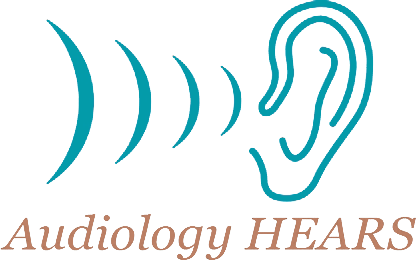In today’s fast-paced world, we often take our senses for granted. Our eyes allow us to navigate through life, and our sense of touch helps us interact with the world around us. However, one sense that is often overlooked is our ability to hear. Regular hearing tests are crucial for maintaining good hearing health, yet many people tend to avoid them. In this blog post, we will explore why you shouldn’t avoid hearing tests and how they can benefit your overall well-being.
Why Hearing Tests Matter
When it comes to our hearing, early detection is key. Hearing loss can develop gradually, and many people may not even realize they are experiencing a decline in their hearing abilities. This is where hearing tests come in. These tests are designed to assess the quality of your hearing and identify any potential issues.
By taking a proactive approach and getting regular hearing tests, you can:
- Detect Hearing Loss Early: Catching hearing loss in its early stages allows for timely interventions and treatment. This can prevent further deterioration and improve your quality of life.
- Maintain Cognitive Function: Research has shown a link between untreated hearing loss and cognitive decline, including an increased risk of dementia and Alzheimer’s disease. Regular hearing tests can help identify hearing issues that, when left untreated, may contribute to cognitive decline.
- Enhance Communication Skills: Healthy hearing is crucial for effective communication. Regular hearing tests ensure that you can hear and understand conversations clearly, reducing misunderstandings and improving your social interactions.
- Enjoy a Better Quality of Life: When you can hear well, you can fully engage in activities and conversations, enhancing your overall enjoyment of life. Hearing tests can identify potential hearing problems, allowing you to take necessary measures to prevent or manage them.
Understanding the Hearing Test Process
Hearing tests are painless and typically involve the following steps:
- Consultation: During your appointment, a qualified audiologist or hearing healthcare professional will discuss your medical history and any concerns you may have about your hearing.
- Physical Examination: The healthcare professional will examine your ears for any signs of infection or blockage, such as earwax buildup.
- Pure-Tone Audiometry: This test measures your ability to hear sounds of different frequencies. You will wear headphones and indicate when you can hear the tones.
- Speech Audiometry: This test evaluates your ability to hear and understand speech. You will listen to words or sentences and repeat them back.
- Additional Tests (if necessary): Depending on your individual needs, additional tests such as middle ear testing or otoacoustic emissions may be performed.
The Benefits of Regular Hearing Tests
- Early Intervention and Treatment: Catching hearing loss early allows for appropriate interventions, such as hearing aids, assistive listening devices, or medical treatments. These measures can slow down the progression of hearing loss and improve your ability to communicate effectively.
- Improved Communication and Relationships: Clear and effective communication is essential for building and maintaining relationships. Regular hearing tests ensure that you can hear and understand conversations, reducing frustration and enhancing your connection with loved ones and colleagues.
- Better Work Performance: In the workplace, communication is crucial. Untreated hearing loss can hinder your ability to perform tasks that require listening and understanding instructions. By addressing any hearing issues identified in a hearing test, you can boost your productivity and professional success.
- Enhanced Safety and Awareness: Hearing loss can compromise your safety, especially in situations where you need to be alert to auditory cues, such as crossing the road or responding to alarms. Regular hearing tests help ensure that your hearing is functioning optimally, keeping you safe in your daily activities.
Putting It All Together
Don’t wait until hearing loss becomes a significant concern before taking action. Make regular hearing tests a priority in your overall healthcare routine. By detecting hearing loss early, you can benefit from timely interventions, improved communication, and an overall better quality of life. Remember, healthy hearing is vital for your overall well-being, and staying proactive can make all the difference.
We hope that you have found this information to be valuable and enlightening. If you have any questions regarding your hearing or wish to arrange a hearing test, please do not hesitate to reach out to us. Our dedicated team of hearing health professionals are ready to assist you with all your hearing-related needs.
